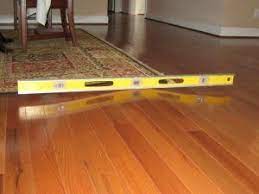
One of the most important factors in maintaining hardwood floors is ensuring that they are not exposed to sudden changes in temperature and humidity levels. Hardwood floors are sensitive to these environmental changes as they can cause the wood to expand or contract, leading to warping, buckling, and cracking. To prevent this from happening, it is essential to keep your home's temperature and humidity levels consistent throughout the year. You can achieve this by using a humidifier or dehumidifier to regulate the moisture levels, and ensuring that your home is well-insulated. Additionally, it's essential to clean up any spills or water leaks immediately to prevent long-term damage to your hardwood floors. By following these simple tips, you can protect your hardwood floors from sudden changes in temperature and humidity levels, ensuring their longevity and beauty for years to come. So, it is crucial to be mindful of these factors when caring for your hardwood floors. Also, keep in mind that certain types of wood may react differently to changes in temperature and humidity. For example, oak is less susceptible to fluctuations, while maple and cherry are more sensitive. It's essential to research the type of wood used in your hardwood floors and understand its specific needs. Additionally, if you live in an area with extreme weather conditions, it may be beneficial to invest in a hygrometer to monitor humidity levels and make adjustments as needed. G&M Remodeling Services LLC describes that by taking these measures, you can ensure that your hardwood floors remain beautiful and stable for years to come, even in the face of sudden changes in temperature and humidity levels.